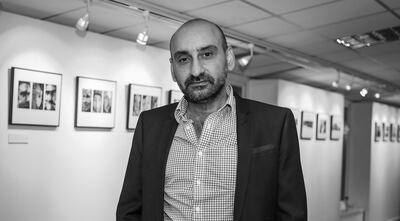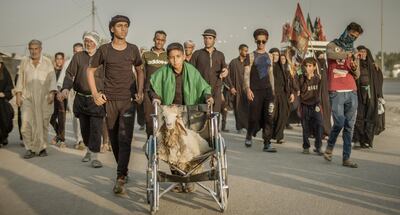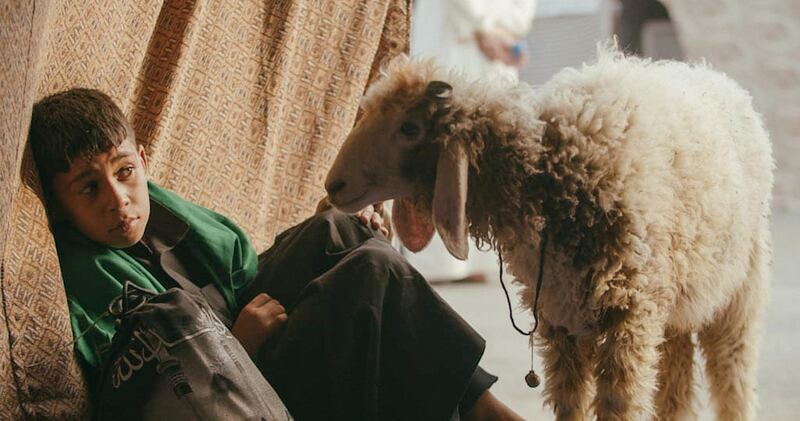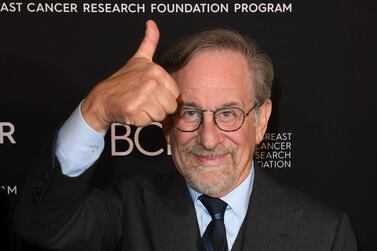Last week, Maythem Ridha's Ali and His Miracle Sheep won the Best Film in the UK Competition at the Sheffield DocFest, which took place as a hybrid event this year. Similarly, the film is also a hybrid, with the director having mixed reality with fiction to make it.
The stunning 26-minute documentary follows a nine-year-old mute boy named Ali as he leads his favourite sheep, Kirmeta, to sacrifice. He embarks upon a strenuous 400-kilometre journey in which he bears witness to the beauty, and the ills, of Iraq.
It's the latest instalment of Iraqi Tales, an anthology of films that Ridha has been putting together since the early 2000s, while a student at the University of Oxford and the UK's prestigious National Film and Television School.

Ridha was born in Iraq, but his family were forced to flee in 1979, and his father took up a post-doctoral position at Southampton University, after the torture and deaths of three of the director's uncles under the Saddam Hussein regime.
After the fall of Saddam, Ridha started to return to Iraq, filming and taking photographs whenever he was there. "The country had changed dramatically," he tells The National. "When we left Iraq, it was a very affluent, highly literate nation."
But Ridha was worried about the media's perception of his birthplace.
"The media was very focused, after 2003, on the war," he says. "But to me, there's another Iraq, which sort of lives beyond these walls and tragedies. These are stories about Iraqis that look at the people on a much more personal and human level. So I kind of took a vow to go back every year and tell a story somehow."
Other films that he has made as part of the Iraqi Tales anthology include Drifting on the Wind (2003), which is about an Iraqi exile invited to return to Baghdad, which leads to traumatic, compartmentalised memories being reignited.
The best known film in the series is the multi-award-winning Al-Baghdadi (2007). It's about a nine-year-old boy who arrives in Britain unable to speak English, and is shunned by those around him. It's a story inspired by what happened to the director when he first moved to England.

Ali and His Miracle Sheep begins with a tale told through intertitles presented over children's drawings. The words on screen recount the story of Imam Husayn, who was killed during the Battle of Karbala 14 centuries ago.
The battle is celebrated every year with a pilgrimage, during which millions of people walk hundreds of kilometres through the Iraqi desert road to Karbala to re-enact the battle, mourn and sacrifice animals to feed the hungry.
The film was also born from the director’s personal experiences.
"My grandmother used to take me to all these different shrines," he says. "I spent my childhood travelling around with her. There are so many stories of a prophet or a good saint it kind of became imbibed in our collective psyche. These became our superheroes, like kids today have Spider-Man, and so we would play characters from the stories."
In the opening scene, a mother is mourning the death of her son. It's then revealed that in 2016, he went to fight against ISIS, never to return, leaving his son, Ali, behind. Before going, he had promised Ali that they would go on the pilgrimage walk and sacrifice a sheep when he returned from war. Traumatised by not seeing his father again, Ali stopped speaking. He decides to make the journey in memory of his father.
In 2018, while Ridha was on a trip to Iraq, he came up with the idea for Ali and His Miracle Sheep. "I came across a lot of kids taking sacrificial offerings, sheep, cows," he says. "There was even one family taking a camel to slaughter at the shrine."
The scene also brought to mind a character he had written about 15 years previously. "It was a secondary character in a longer drama piece – a mute boy who had been traumatised because of the loss of his father. Also, at the time, a lot of Iraqis were fighting ISIS, so I combined these ideas to make the film."
This idea of a story coming to him seems like a strange assertion because, in general, documentaries are something directors find in reality, not something they orchestrate or script.
"Initially, the idea was to create almost a half-drama, half-documentary hybrid," he explains. "But then we eliminated some of the drama elements because of the realities of filming in Iraq, but the reality became far more interesting."
Most important was finding Ali.
"The boy had lost his dad a year and a half earlier. So he was traumatised, clearly," Ridha says. I bought the boy a sheep and let him bond and create a relationship with it. Then I said, 'We are going to go on a long walk and then sacrifice the sheep for your father. How do you feel about that?' He was OK with it, and that became the element that drove the story.
While this opens up the work to criticism, Ridha sees it differently.
"It was clear to me that having still not sacrificed anything for his late father … this was going to be a healing journey for him and I recognised it from the excited look on his face that he felt something similar in his own childlike way, as if this journey was something he had been waiting to do for a long time," he says.
"Most of the stuff on that journey was discovered. You find something and then you create some kind of scene or story device around it."
Winning the award at Sheffield has already sparked change for Ridha. "I've been getting a lot of calls, some from the Middle East, offering to direct projects."
It's certainly an exciting time for the director, who is reaping the rewards of bringing alternative, more human stories from the region to the rest of the world.







